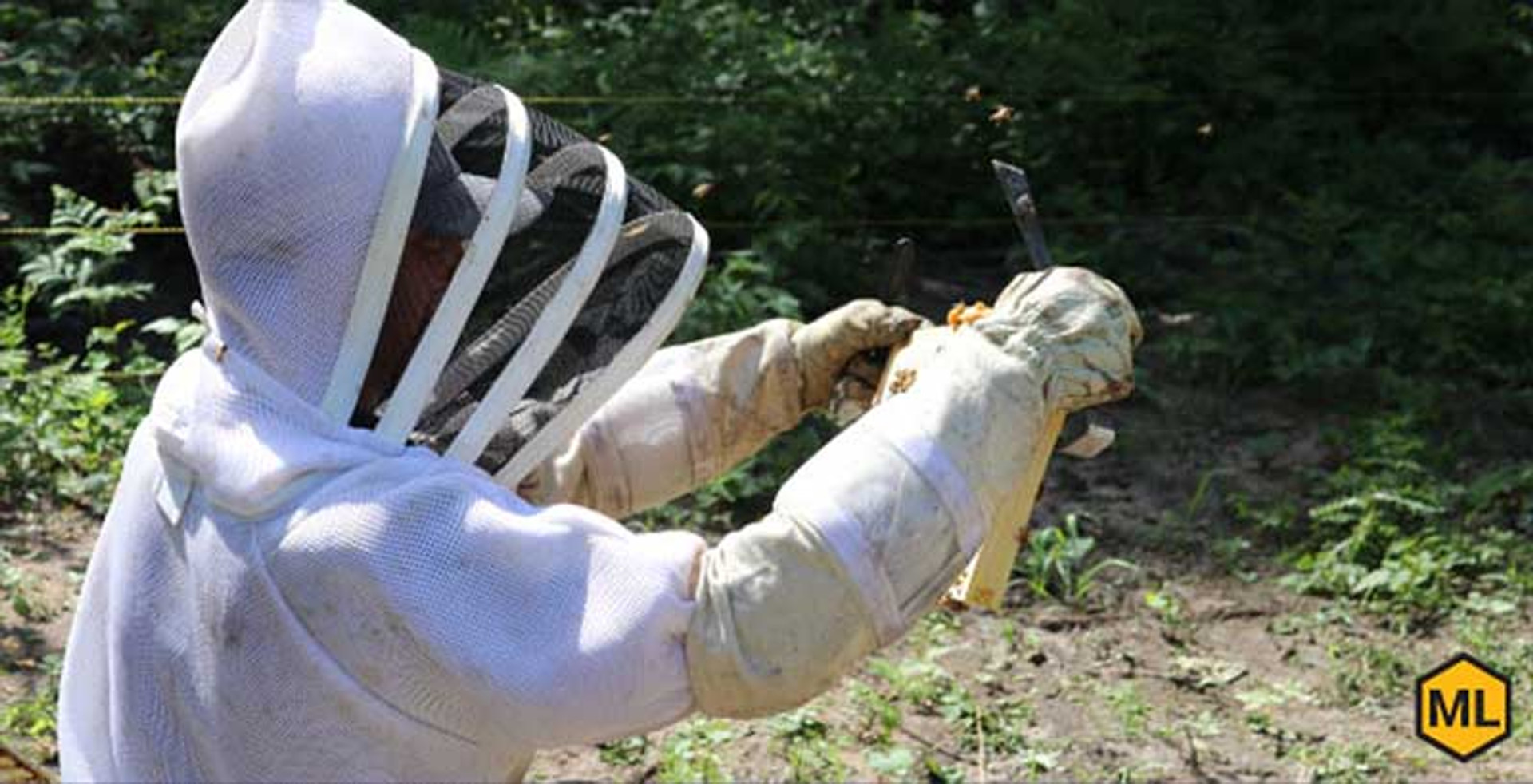How To Overcome The Fear Of Stings When Beekeeping
A few factors of running an apiary might give potential beekeepers a pause. Where will you keep your hives? How will you sell honey at the end of the season? Even if you have all the details figured out, you might still struggle with one big dilemma: overcoming the fear of bees and stings.
This fear causes kids and adults alike to steer clear of any stinging insect—from easily irritated hornets to the fuzzy bumble bees. However, many people find a way to make a small sting into a much bigger experience than they are, leading to bee phobia or other irrational fear of bees.
Don’t let your anxiety prevent you from pursuing a noble and fulfilling hobby. With a little knowledge and experience, you can manage anxiety and learn how to overcome the fear of stings when beekeeping.
Bee-Friend The Honey Bees
Facing your intense fear is difficult, but it does help. The more you learn about honey bees and practice exposure therapy, the more you’ll realize how docile these creatures are. If you can’t bear the idea of being around even a single bee and have persistent fear, start by researching. For example, did you know that not all honey bees can sting? Only the females—the queen bee and her workers—have a stinger.
Furthermore, the worker bees that comprise most of a hive’s population don’t want to sting people. They only do it to protect themselves and the hive, so there is no reason for bee phobia. If you learn the warning signs of an agitated honey bee, such as louder buzzing or flying aggressively toward the threat, you can de-escalate the situation before you or the bees get hurt. Manage your fear reaction with knowledge!
Consult a mental health professional if you need further assistance. They may even suggest deep breathing exercises and other relaxation techniques to help manage your specific phobia.
Learn To Avoid Bee Stings
The unfortunate truth is that honey bee stings are inevitable. However, they’re also remarkably rare, so don’t let it cause intense anxiety. Beekeepers work around thousands of honey bees, but a talented local beekeeper can make it through an entire season without receiving a sting.
A few practical tips can help you avoid the vast majority of bee stings. First and foremost, act calmly and confidently when you work around your hives. Honey bees sense fear. A nervous or uncertain beekeeper is a threat to the hive. When you’re calm, your bees are calm, too.
Next, learn how to use your beekeeping equipment properly. While experienced beekeepers can get away with only using a hat and veil, beginners might feel much more comfortable with a suit, gloves, and other protective equipment. Protect your body to reduce fear and control negative thoughts.
Know What To Do With A Sting
When learning how to overcome the fear of stings when beekeeping, you’ll benefit from having a plan if the worst does happen. Knowing that you can handle a sting will make the concept much less frightening. Learn how to properly remove a stinger from your skin by gently scraping it with a fingernail or piece of gauze.
If you try to remove the stinger with tweezers or by pinching it with your fingers, you might squeeze more venom into your skin, making the pain and reaction more intense. Once the stinger is out, wash the area with soap and water. You can apply a cold pack, sting relief wipes, or the popular "Stops the Sting" to reduce swelling and ease the pain.
Finally, find out if you’re allergic to bee breeds such as the Africanized honey bees or other pollinator breeds. If you are allergic or sensitive to bee stings, keep the proper medications and other necessary treatment supplies to treat a sting quickly. If you have a severe allergic reaction, get medical professional treatment.
If you're a buzzing beekeeper working to overcome the fear of stings, be sure to explore our wide range of beekeeping supplies. With the right equipment and protective gear that doesn't compromise on quality, you'll be well-equipped to face those fears and enjoy your beekeeping journey to the fullest!

